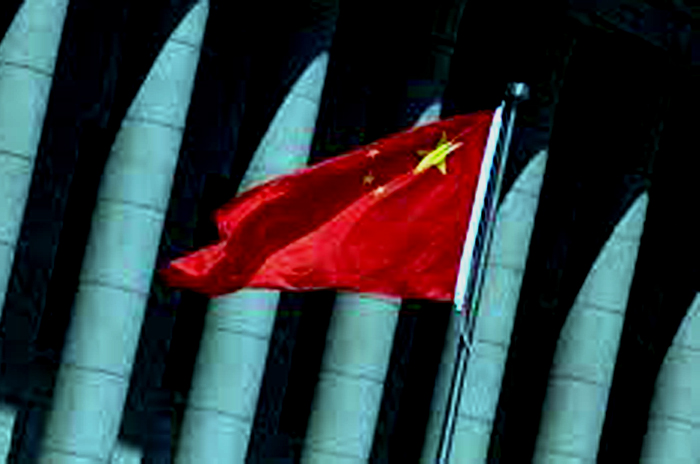China’s audit agreement gives respite but few investment incentives.

According to Scott Murdoch and Tom Westbrook,
Hong Kong Investors have applauded a landmark agreement that would provide U.S. authorities access to the accounting records of Chinese businesses. Before a lot of money moves to China, though, markets will need to show that inspections went well and that the economy is getting better.
Related: Credit Suisse Casts Doubt on China’s Ambitions Amid Strategy Redesign
At least in theory, the agreement reached on Friday meets a long-standing U.S. demand for unrestricted access to Chinese audit files. This makes it much less likely that Chinese companies will be kicked off U.S. stock markets for not following the rules.
However, U.S. officials cautioned that the agreement was only an initial step, and the financial markets are similarly sceptical. Investors want to see real collaboration and are worried that, even though the agreement is good, it won’t be enough to lift the economy out of its gloom or solve other Sino-American problems.
On Monday, rising global interest rate forecasts sparked a new round of risk aversion, which curtailed the share price gains brought up by rumours before the audit agreement.
Alibaba (NYSE:BABA) and Baidu (NASDAQ:BIDU) are among the Chinese internet companies whose U.S.-listed shares are selling at less than half of their 2021 highs and not much above their recent lows.
Sam Lecornu, co-founder and chief investment officer of Hong Kong-based fund manager Stonehorn Global Partners (NYSE:GLP), said, “There is confidence based on the idea that China and the United States can agree and look for common ground.”
Related: China’s CATL will develop new battery materials to boost energy density, its chairman said.
However, the audit issue is not the leading cause of bad feelings against China, “he stated. There were still “larger accords to be struck” between the two nations that would help improve mood.
Investors are primarily concerned about a dramatic slowdown in the Chinese economy, which has led to a decline in confidence and expenditure, as well as an increase in unemployment-a factor partially reflected in the Chinese yuan’s 2.5% decline this month.
Then there are steeply rising U.S. interest rates—an incentive for U.S. investors to stay at home—fresh strains in U.S.-China ties over Taiwan, and lingering concerns regarding regulatory tightening in China, particularly for internet companies.
George Boubouras, who is in charge of research at K2 Asset Management in Melbourne, thought this was good news.
“However, (U.S.-China) divergence will persist.” Too many disparities exist between the West’s and China’s desire to shape their narrative. Tension will persist.
When the settlement was announced on Friday, investors in Chinese companies that are listed in the U.S. breathed a sigh of relief. However, legal experts and people who follow China warned that the two sides might still disagree over the details.
Related: China’s Premier Li Keqiang supports the new energy vehicle sector.
SIDELINES
According to HSBC, the majority of global and even Asia-focused funds are underweight on China, and foreign institutional investors’ flows into the nation this year have been cautious and marginally positive.
In the near future, attention will turn to the first actual audit reviews required under the agreement, as well as the anticipated revision of Chinese regulations governing how mainland enterprises may access global funds.
Due to COVID limitations in mainland China, the U.S. Public Company Accounting Oversight Board (PCAOB) stated that inspections will initially be conducted in Hong Kong. Officials reported that chosen businesses had already been alerted.
Daniel Tu, who started Active Creation Capital in Hong Kong, said, “A lot will depend on the results of the comprehensive audits and the geopolitics as they are now.”
Investors in the United States, especially institutional investors, are currently on the sidelines.
The markets are also waiting for the final rules from the China Securities Regulatory Commission (CSRC) on how mainland Chinese companies can list overseas.
CSRC officials will need to review all IPOs and that foreign banks acting as sponsors or lead underwriters must also submit yearly documentation, which bankers say would further hinder transactions.
Before they would return to a market that has underperformed for years, economists say investors must feel confident that the merger reflects a favourable shift in the Chinese government’s attitude toward business and economic assistance.
Related: COVID limits and heatwaves lowered China’s industrial profitability in July.
Andy Rothman, a financial strategist at Matthews International (NASDAQ:MATW) Capital Management, saw this as a sign that the Chinese government might be getting back to a more realistic view of the economy’s problems.
If this demonstrates a sensible approach to COVID reduction and dealing with the Chinese property industry, it might have a significant influence on the Chinese economy, investment climate, and investor sentiment toward Chinese equities.





